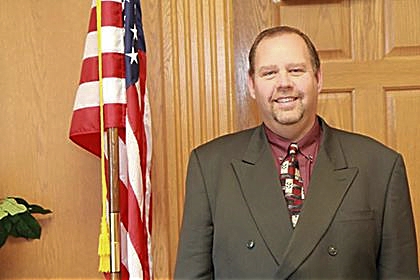“The premise was simple, educate, coach, mentor and teach rural businesses and members of the workforce to take advantage of online opportunities, outside of their geographical boundaries. ROI will target skilled, underemployed, unemployed, and those that have dropped out of the workforce, to teach them how to market their skills.”
Commentary by Darin Bushman, Piute County Commissioner
Rural Online Initiative
Thinking Outside the Traditional Economic Development Box
Much like the platforms of many county commissioner candidates in rural areas of the nation, I too had visions of economic development being the solution for a struggling, poor, and a small county with little to no tax base. A county in which over 74% of land is controlled by the federal government. It was quite simple, all you have to do is entice employers to your county, and ta-da, your problem is solved! Simple right?
In November 2012, I was elected to office in one of the smallest, most poverty-stricken counties in the State of Utah, one with less land than a small wildfire consumes in an afternoon. I was still holding true to my campaign statement as I took the oath of office, I had even stated “economic development will be my number one priority”. Now with the full confidence of my constituents, I embarked upon the journey of making my county prosperous and economically viable.
It was a slow venture, and I soon began to realize how difficult it was to fulfill my initial promise. My fellow commissioners didn’t feel the same enthusiasm that I did in regards to economic development. In fact, they despised the lack of success of previous efforts and personnel in that arena, efforts that yielded no results. When our economic development director retired, they felt it was best not to fill the position. I was forced to look at the problem of economic development from a different aperture and angle. How was I going to fulfill this big campaign promise, when it seemed I was the only one interested in doing any work on economic development? I didn’t blame my fellow commissioners, our track record of success was littered with failed projects and no results.
This pushed me towards evaluating the entire model of economic prosperity in our little county. Tourism was good, in fact, tourism was on an upward trend. Despite this, young families were still ex-migrating at an alarmingly fast rate. Tourism was so good, that all the available housing had been bought up for secondary and summer homes. Yet, Tourism is a 110 day season in my county, rendering a wage not proficient enough in sustaining young families. Agriculture was working, but nobody was driving new vehicles, and nobody was hiring at sustainable wages. So here we sit in a beautiful County, one with little-to-no land, limited water, limited 3 phase power, no interstate, no rail service, no sewer systems, no commercial building space, limited workforce, no higher education opportunities, and everyone that graduates is therein forced to move away. Our average median age is the highest in the state, and trending upward. Are we destined to be a 110 day per year tourist destination, where none of the tourism employees can even afford to live? Are we destined to see our schools die?
In 2016, we embarked upon an effort entitled ASAP (Area Sector Analysis Process). The concept is to define county assets, survey citizen desires, and align those facets with industries that fit your county assets and citizen needs. The concept is a good one, in fact, it’s a very beneficial process to go through. We did that, we received a great report that showed our citizen wants and assets, and how they matched up to various SIC (standard industrial classification) codes. The results showed our county was very picky about what they wanted, and what they were willing to accept. The ASAP report also showed that our assets lined up with very few industries directly. The industries that we were able to make a connection with were extremely capital intensive, or limited in quantity. The huge failure in this process was that ASAP didn’t take into account the cost of recruiting the matched SIC code industries to your county. In our case, most, if not all would require significant resources to even pursue. On top of this, the potential success rate was entirely unknown. It was in the final report meeting that I realized, the only solution for our county, is to leverage what we have, with the people and assets that we have already in our county.
I came to the realization that we have very talented people in our county, many of them are under-employed, unemployed, or have dropped out of the workforce. We had a tour of state legislators come through, and our school district business administrator touted the fact that “we don’t suffer from the same teacher shortages as other districts.” In fact, we have an abundance of certified, qualified teachers, and we have more teachers than available positions. Many of these individuals are under-employed as para-professionals, because they can’t find an available teaching job within reasonable driving distance. We have people who are geographically bound because a spouse is employed in the county, but often times, there is no opportunity for the other potential wage earner. It was this issue that drove me to consider creating opportunities for those who are geographically bound, yet still have marketable skills.
As I sat in my office working on a client project, I pressed the “post” button for another freelance job offer on Upwork.com, and it hit me, why can’t our citizens, with skills to offer, be doing this job instead of someone who speaks broken English from Bangladesh? Why aren’t our citizens doing online work, taking advantage of online opportunities, and marketing their skills outside the bounds of their current geography? The same question arose about businesses, or traditional brick and mortar retail operations. It was quite simple really; Fear, risk, uncertainty and lack of knowledge were the driving force for lack of movement from our citizenry in this area. My solution to economic vitality in rural Utah was right in front of me, the very solution is in our good people who are already living in our county.
Traditional economic development recruiting efforts are rife with stories of failure and waste. Even the best of the best, Joe Max Higgins of the Golden Triangle states that he “is only about 11% effective at landing companies to the Golden Triangle” and he will also tell you that’s only because he doesn’t even chase those that he doesn’t feel he can win. Statistics on traditional recruiting success rates are bad to begin with. Economic development organizations claim success if they happen to be copied on an email regarding the building permit, or anything else that would remotely tie them to an investment or development. Even with this statistical bias, the stats for traditional recruiting suggest that they are horribly fruitless. With some even suggesting less than .5% success. Taking that number for sake of argument for every 200 recruiting efforts -you might win one. These odds are not remotely viable for a county with a $1M general fund budget, and no economic development personnel.
I presented the idea of starting a program to teach rural Utah citizens how to take advantage of online opportunities. The idea was presented to local chamber members, and other elected officials and got accolades for the idea and received no pushback. I then presented the idea to numerous state organizations and at various events. Again, the result of these presentations were extremely positive, with little to no pushback. I must admit that I had a fear of starting another program, I feared that it would become just another program buried in state bureaucracy. It didn’t belong with the Governor’s Economic Development Office, as they aren’t structured for education, or large scale outreach. It didn’t feel right in Workforce services, even though they do outreach and education, they don’t do entrepreneurial sorts of endeavors. Finding a home for such a program was a challenge, and our state doesn’t just create new departments on a whim. It finally came to me, with the help of a fellow commissioner, that the perfect home for this program would be with a college who specializes in local outreach. The USU Extension office was the perfect fit for my idea, if only they were interested, and if only we knew what to call it.
After meeting with the Vice President of USU Extension Ken White and getting his blessing, the Rural Online Initiative (ROI) was born. The premise was simple, educate, coach, mentor and teach rural businesses and members of the workforce to take advantage of online opportunities, outside of their geographical boundaries. ROI will target skilled, underemployed, unemployed, and those that have dropped out of the workforce, to teach them how to market their skills. This would be completed through remote work, eCommerce, or freelancing. ROI will target traditional rural businesses, to educate, coach, mentor and guide them to expand their businesses through online opportunities. ROI will target High School Students nearing graduation, to avail them of the opportunities that exist online for those not pursuing higher education. By targeting high school students, ROI hopes to reduce net ex-migration from rural Utah counties.
In addition to targeting skilled members of the workforce, ROI intends to target unskilled workforce members who are geographically bound. By targeting those with limited skills, ROI has a post performance micro-tuition reimbursement program to help develop task based skill-sets that will be marketable online. The ROI micro-tuition reimbursement program will also be available to those hoping to enhance, or broaden their skill-sets for additional online opportunities.
ROI may not entice new industries to rural Utah, but it will put people to work, and it won’t bring new traffic, congestion and smog. ROI’s focus is to help existing rural Utah residents succeed online, and stem ex-migration from rural counties.
ROI (HB 327) sponsored by Representative Mike Noel and Senator David Hinkins has cleared the Utah house, and senate, received full funding and been signed by the Speaker of the House and President of the Senate. HB 327 is now pending a signature from Governor Gary Herbert. Assuming HB 327 receives the Governor’s signature, ROI will embark upon a 3 year pilot project administered by Utah State University under the Extension arm of the college.
Darin Bushman is a County Commissioner in Piute County, and resides in Marysvale, Utah. Darin has a broad base of experience in Marketing, Digital Media, Sales, Quality Control, and Manufacturing Management. Darin was raised in Marysvale and moved back home in 2003 after spending many years in corporate America. Darin volunteers for Piute County EMS and is a licensed Intermediate EMT, Instructor, and Training Officer. When not working, Darin enjoys traveling, riding OHV’s, photography, and exploring the mountains with his wife Keri and their three children.

Free Range Report
Thank you for reading our latest report, but before you go…
Our loyalty is to the truth and to YOU, our readers!
We respect your reading experience, and have refrained from putting up a paywall and obnoxious advertisements, which means that we get by on small donations from people like you. We’re not asking for much, but any amount that you can give goes a long way to securing a better future for the people who make America great.
[paypal_donation_button]
For as little as $1 you can support Free Range Report, and it takes only a moment.



